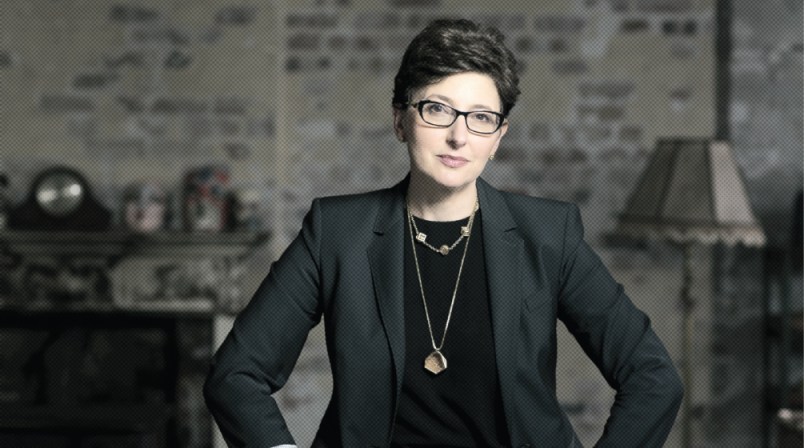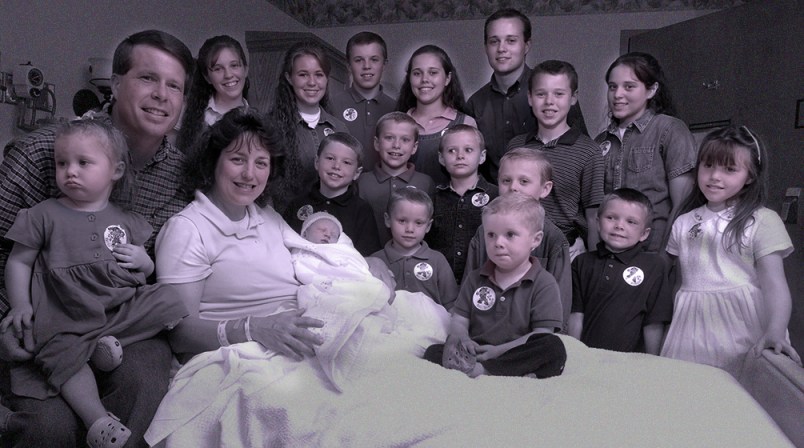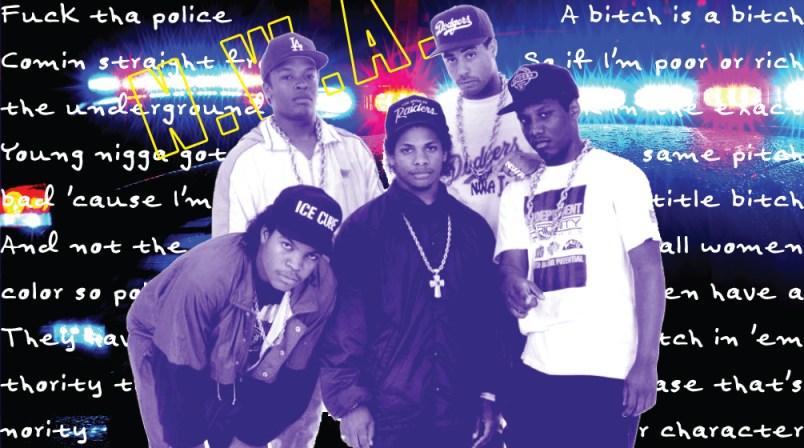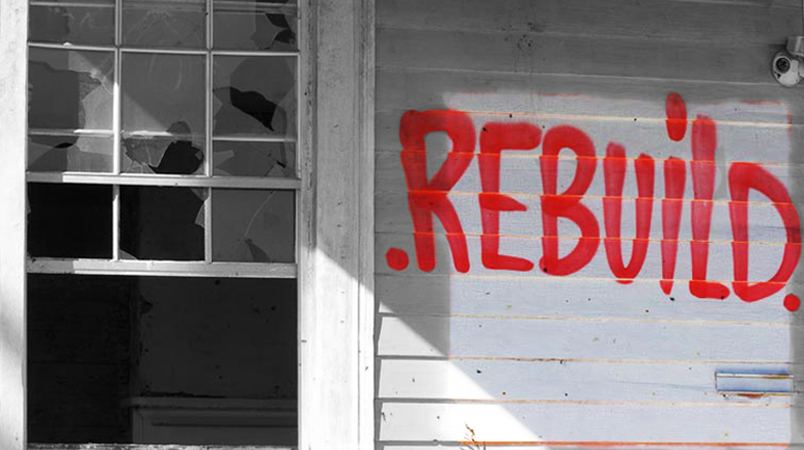Julia Hobsbawm is on a mission to make us rethink everything we believe about work and success. She draws on systems theory and British class formation and disruptive innovation—all to sell an idea lots of us find ugly, distasteful, even dangerous.
Here it is: She believes in the power of networking. And she doesn’t just think it’s effective; most people already know and begrudgingly accept that fact. She’s also set on convincing us that networking is great.
Hobsbawm, a visiting professor at London’s Cass Business School, calls herself “the world’s first professor of networking.” She’s the author of several books on the subject, and runs a series of conferences and workshops that help professionals become more culturally literate and better able to navigate a diverse, cosmopolitan world. She talks about a “new salon culture” and a “more meritocratic approach to networking,” and says that once-exclusive gatherings should allot space for members of marginalized groups.
I’m skeptical that this can ever work, and as cordially as possible, I tell her as much. This has little to do with Hobsbawm herself and nearly everything to do with my own neuroses about meritocracy, networking and its close cousin, nepotism. More specifically, it has to do with a phrase we’ve all been hearing since forever, uttered by prospective employers, perfect strangers, parents, grandparents and parents’ friends: “It’s not what you know, it’s who you know.”
My hatred for this phrase is visceral and deeply rooted. I know I’m not the only one. Unlike many clichéd but ultimately harmless nuggets of career advice, this one is downright pernicious. It distills everything awful about our social and economic moment into one sentence. At once smug, cynical and complacent, it embraces insincerity and glad-handing as paths to success—dismissing education, knowledge and hard work. While the phrase certainly predates the 2008 economic crisis, it became all the more resonant in an era where entrenched inequality was part of the national conversation, and is a cruel slap in the face for the first generation in American history that’s expected to fare worse than its parents.
What it isn’t is false. Perhaps there’s a way to break this news to young people in a way that recognizes the cruelty inherent in such a system, but I haven’t seen it yet. Indeed, what makes the phrase so loathsome is precisely the way it recasts an unfortunate reality—education and ability matter less than knowing the right people—as an opportunity. What should be understood as a worrisome diagnosis has instead turned into a piece of advice for young people, bestowed as if it were a gift.
Lately, said advice is everywhere. Elite Daily, the self-proclaimed “Voice of Generation Y,” celebrates people who schmooze their way up the investment-banking ladder. Stanford’s Graduate School of Business, where in theory you pay tens of thousands of dollars to expand the scope of “what you know,” also shares keynote speeches encouraging you to forget all that, quit your job, and hope you’re extroverted enough to make it. Ramit Sethi, who runs a company called I Will Teach You To Be Rich, dismisses the “It’s not about what you know” phrase as the bitter rant of “countless unemployed Brooklyn hipsters who make me want to take their plaid Keffiyehs and shove them.” But then the author acknowledges that these hipsters are right—that is the way the world works—and doesn’t seem to understand why anyone might see this as a problem.
In a country where the pundit class believes education and knowledge are the ticket to the middle class, it’s jarring to come up against successful people who beg to differ. It’s even more jarring in the context of “model minority” communities like the Jewish one I grew up in. At the heart of the rags-to-riches story American Jews tell themselves is a lesson about meritocracy and hard work: The Jews came with nothing, but worked hard, hustled and invested in education. To champion networking as the truest path to success is to betray the very idea of the American Dream.

So before I ask Julia Hobsbawm to convince me of her ideas, I can’t help but tell her how much I loathe that one little phrase. She immediately understands where I’m coming from. Hobsbawm, a Brit, calls it the “American limitation”: We are brought up to think of networking as an act of salesmanship, as the realm of extroverts. In fact, she says, it’s far more complicated than simply “getting on and promoting yourself,” something many in the U.S. seem to misunderstand.
“Networking 2.0,” as Hobsbawm calls it, is about cultivating a sense of curiosity. Her business, Editorial Intelligence, calls itself a Knowledge Networking company that helps professionals become “ideas-fit,” much like a personal trainer makes one physically fit. It offers classes and other programs for executives, along with a twice-yearly conference called Names Not Numbers. Hobsbawm often does business with Americans, and even staged a successful Names Not Numbers conference in New York in 2011. But the bulk of her work, and most of Editorial Intelligence’s clients, is based in the UK.
Citing both her own stateside experience and academic literature, Hobsbawm tells me that “Americans’ attitude toward networking has been fundamentally transactional for 50 years. It’s just a lot more sophisticated…than that. It’s what you know and who you know.” Far from using the clinical language of business, she is fond of comparing herself to a Yiddish matchmaker. The kind of personal, intimate connections made in small-group settings—in a Guardian interview, Hobsbawm called it “the minute someone looks you in the eye and engages you and your cortisol levels drop, and you feel OK”—are, she says, the root of all successful networks.
Hobsbawm calls her vision “open-sourced elitism.” She is steadfast on the notion that the professional world can’t become a pure meritocracy. “We are all naturally inclined to love an upgrade,” she says. If that’s true, the best way to guard against nepotism and patronage is to keep holding the same kind of elite gatherings we’ve always had, but with more people, especially people who are usually left out. Hobsbawm’s ideal world is one in which “every elitist gathering of individuals…has a quota that is available to people that come from outside the catchment.”
This may seem counterintuitive; widening the upper echelon would seem to produce an elite that’s less, well, elite. But Hobsbawm is an optimist. She believes that as talented people from excluded groups break into the elite, they’ll outperform their peers who made it on social connections alone—and eventually replace them.
When I ask how introverts fit in, she says they’re natural networkers because “in order to connect with another individual, you have to have a degree of intimacy.” As far as she’s concerned, a clear, genuine interest in other people works better than mere glad-handing. This is also why Hobsbawm believes the British are poised to become the world’s best networkers: They are better at curating both a public and private self, she says, and because of Great Britain’s long history of class stratification, they’re not under the illusion that they live in a pure meritocracy.
Ironically, there’s a bootstrapping, almost American aspect to how Hobsbawm got here. Her father, Eric Hobsbawm, was a Marxist historian and one of the most renowned scholars of the 20th century, but young Julia didn’t excel in school. She credits her success to working harder than her more academically-gifted peers, taking on tasks they wouldn’t do, and refusing to coast on her last name. Some people think “there is a shortcut and you just ring the most powerful person on that Rolodex,” she says, but it’s not that simple, “and that’s a good thing.”

During our conversation, I keep trying something: I envision “networking” physically, as a kernel of good practice surrounded by layers of bloat and self-aggrandizement. As Hobsbawm talks, I picture myself removing the layers one by one. But mentally, I am never able to remove the last layer. The Names Not Numbers website features many testimonials, but the one I keep seeing is from Niall Ferguson, who praises the conference as being “like Davos, with community singing”—as if the main problem with the notorious Swiss summit for global elites is that Angela Merkel forgot to bring her guitar.
As for Davos itself, Chris Hayes attended in 2011, and points out its curious dynamic in his book Twilight of the Elites: Even the world’s most powerful economic conference is divided into haves and have-nots.
“A social hierarchy that extends ever upward instills a potent combination of egomania and insecurity,” Hayes writes. “It is the nature of the meritocratic scramble that each success brings into view some new higher status level to envy.” And yet when Davos attendees participate in this meritocratic scramble, they aren’t taking tests or writing papers to prove their worth; they’re working the room.
When Hayes sees America’s rampant inequality and institutional failure, he can’t help but call the very idea of meritocracy into question. He calls this the Iron Law of Meritocracy: “Eventually the inequality produced by a meritocratic system will grow large enough to subvert the mechanisms of mobility…Those who are able to climb up the ladder will find ways to pull it up after them, or to selectively lower it down to allow their friends, allies, and kin to scramble up.” This creates an incompetent class of elites and turns “It’s not what you know; it’s who you know” from an aphorism into the overriding principle of the working world.
Tinkering around the edges of this system is what Hobsbawm is trying to do, and she convinced me she’s doing a good job. “Capitalism is what we’re stuck with for now, but it is a capitalism that is becoming more collaborative,” she told me.
Fair enough. But then why treat networking as anything but a necessary evil? For every job that exists in Hobsbawm’s “collaborative capitalism,” there is another that exists in what Sarah Kendzior calls “the prestige economy”—a world in which personal prestige, not money, is the most valuable currency. In this economy, to seem desperate for work, or to spend your time carefully building a skill set and knowledge base in order to be more employable, is already a strike against you. No more striving. The trick is to just keep gliding.
Hobsbawm’s approach recognizes a fundamental truth: True meritocracy is impossible, and perhaps the smartest solution is to stop chasing it. Then I think about the meritocratic systems the U.S. did try to create: The University of California system, for instance, used to be free and now it’s not. This didn’t just happen naturally; the greed and selfishness of an older generation made it so. Those days are not coming back. Young people are right to be indignant when an older generation asks us to not only adapt but revel in the wreckage they’ve created for us.
Jordan Fraade is a journalist and editor in Brooklyn. He writes mostly about urban planning and has been published in Gothamist, The Baffler, Al-Jazeera America, and BKLYNR. Find him on Twitter @schadenfraade.






